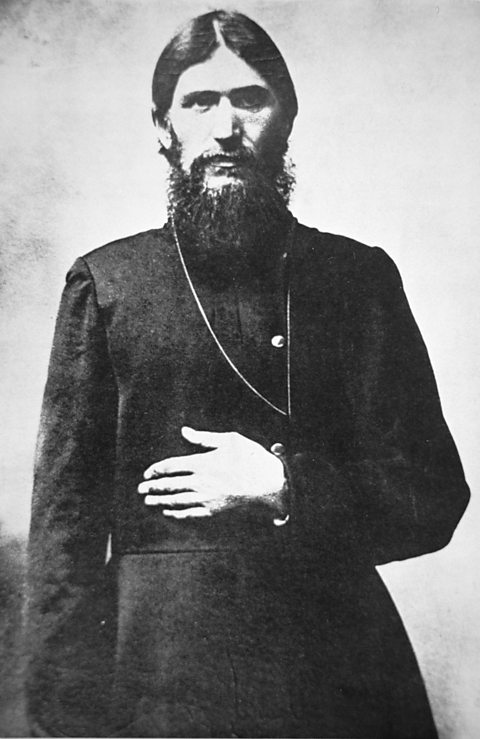Issues with Rasputin

The imperial family was brought into disrepute as the Tsarina fell under the influence of Grigori Rasputin.
Rasputin was a monk from Siberia. He was rumoured to be a Khlyst, member of an extreme underground sect that had split from the Orthodox Church. He was infamous for his drunkenness and for womanising.
However he also gained a reputation as a healer, able to perform amazing feats and miracles.
Rasputin came to the attention of the royal family. In April 1907, Alexandra called on him to heal her only son, the Tsarevich Alexis. He was suffering from painful bleeding as a result of an injury. It was not publicly known but Alexis suffered from the blood disease haemophilia.
After Alexis recovered, Tsarina Alexandra became convinced that Rasputin could control the young boy's illness.
While there is still debate over the nature of his powers over the health of Alexis, it is clear that his influence over the Tsarina was considerable. He advised her on appointments to the government, interfered in important decisions. He could do no wrong in the eyes of the Tsarina. Excuses were always made for his excessive and antisocial behaviour.
To the Russian people, Rasputin symbolised everything that was wrong with imperial government. The court and the royal family became objects of ridicule, to be despised. Rasputin's murder by royalists at the end of 1916, came too late to undo the damage he had caused.